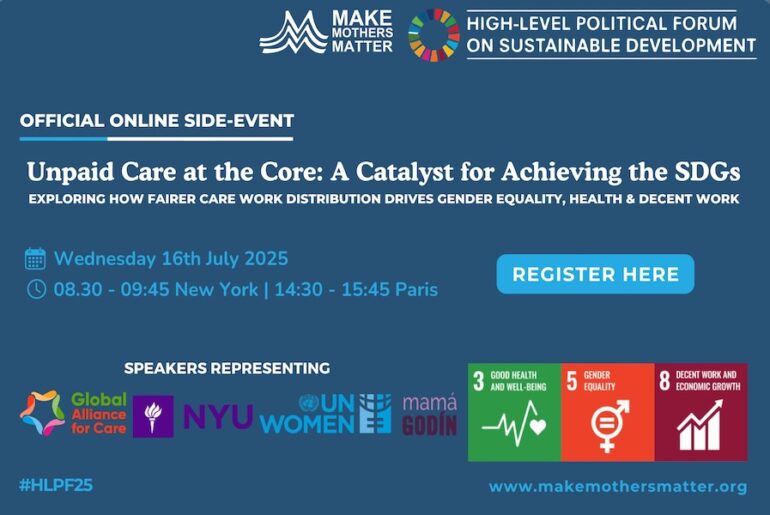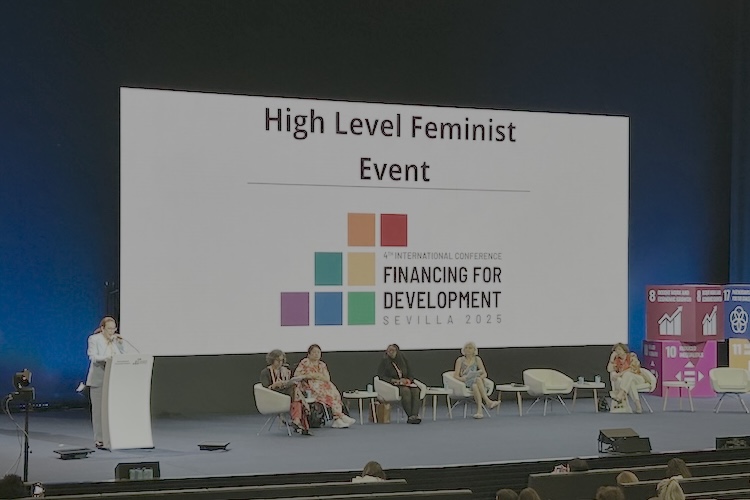Portrait of a (working) mother exhibition comes to Zurich
09.03.20
International Women's Day - After Geneva and other venues, the exhibition came to the ETH Zurich, Switzerland's most prestigious engineering university.
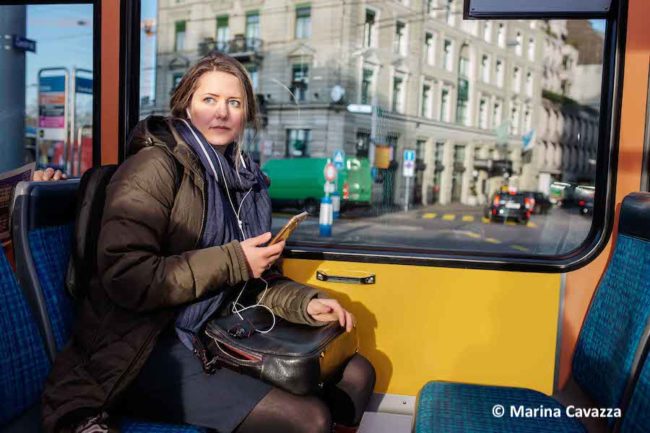
Portrait of a (working) mother is a photo exhibition resulting from an interdisciplinary photographic-research project on motherhood, career, and international mobility. In the original exhibition supported by MMM, which was notably shown at the United Nations in Geneva in June 2018 , the work of Marina Cavazza, a photographer, and Eglė Kačkutė, a scholar now Associate Professor at Vilnius University and Assistant Lecturer at Maynooth University, portrayed 27 expatriate mothers living and working in International Geneva.
The Zurich exhibition builds upon the original project with an additional 10 portraits of mothers working at the ETH. Their particular situation was discussed at the opening event on 4th March. Like in other workplaces, being a (working) mother, i.e. combining care responsibilities with career aspirations and obligations, is a challenge; but it is here compounded by the fact of being a foreigner, having high responsibilities and being part of a prestigious academic institution.
The entire portfolio can be seen on Marina Cavazza’s website.
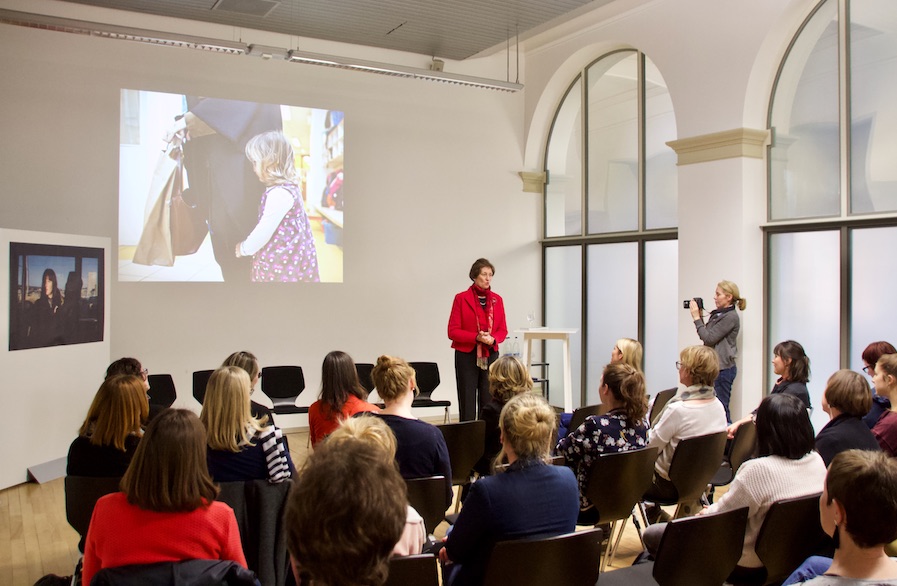
Opening of the 4th March event by Sarah Springman, Rector, ETH Zurich – Photos of the opening event courtesy of Ian Bichelmeier
Eglé Kačkutė’s analysis
“In the original project which had over 25 photos and interviews, we very much focused on the obstacles that women face in managing to enjoy their careers as well as family lives – as professional migrants and parents – on the sacrifices that people have to make through the mix of gender, migration, motherhood and career advancement. And because we worked very much with the backdrop of the discourse of ‘having it all’, it was obvious that nobody was having it all.
In the ten new interviews and portraits that were done here at the ETH, a different story emerged. The same lens of gender, motherhood, migration and career advancement was used to produce a different effect.”
“This time around, the story shone a light on what enables women to have the lives in which both family and career are possible, namely, cooperative partners, childcare structures and support networks of family and friends. This acknowledgment is performative in that it highlights the fact that nobody can do it on their own. That unless the supportive structures are in place, people are not going to succeed in maintaining their career/professional lives alongside their family lives.”
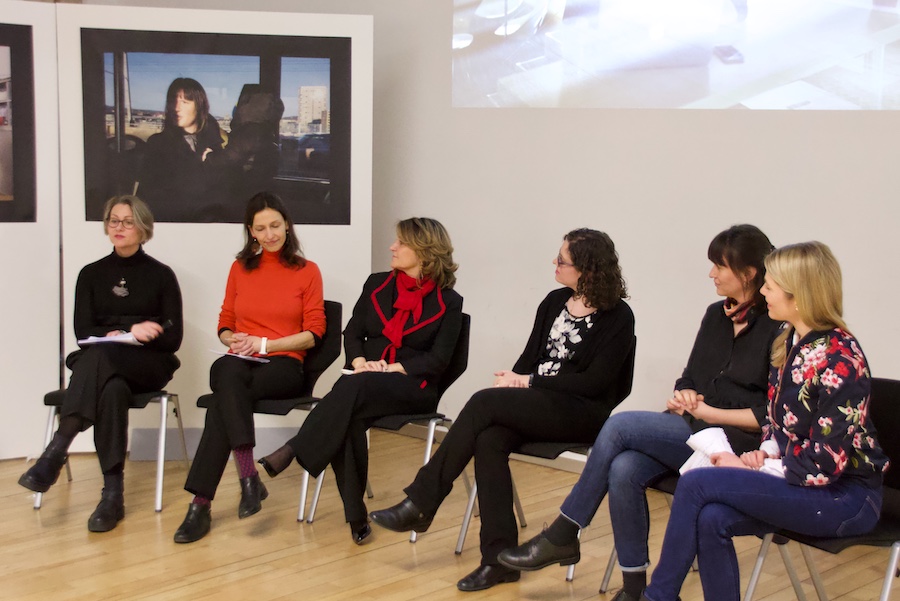
Panel Discussion – From the left Eglé Kackute, Marina Cavazza, Keynote speaker Simona Scarpaleggia, Head of the Global Initiative “The Future of our Work” at INGKA Group (IKEA), and participating (working) mothers.
Selection of mother’s quotes
- “I am only a small part of a functioning, sustainable network of loved ones to whom I am so important as a person, that they give me the freedom to do what I want. This enables me to set priorities and be a mother, partner, friend, daughter, neighbour, and colleague. With this in mind, the notion of achieving a work-life balance does not make sense if we only think of ourselves as individuals and forget the role of the people around us.” (Andrea)
- “The most difficult thing for me about being a mother is on a very profound level, because how I define myself as a woman has changed. We are part of a generation raised to be professionally successful, surrounded by feminists and independent women. I feel guilty about sacrificing my career, and at the same time, I feel guilty for feeling this way, instead of enjoying my time with my child. The guilt also has to do with a lack of honesty about motherhood in society in general. Being a mother is very idealised – of course, there are moments of great happiness, but there are also moments that are really hard.” (Daniela)
- “I have met women who have been terrified to even consider starting a family – for fear of losing their project, for the difficulty of working in a lab while pregnant, or for not having the flexibility to take time for their children. People do not always make career choices with these things in mind, because often they do not even realize that these issues exist until they wish to start a family.” (Renana)
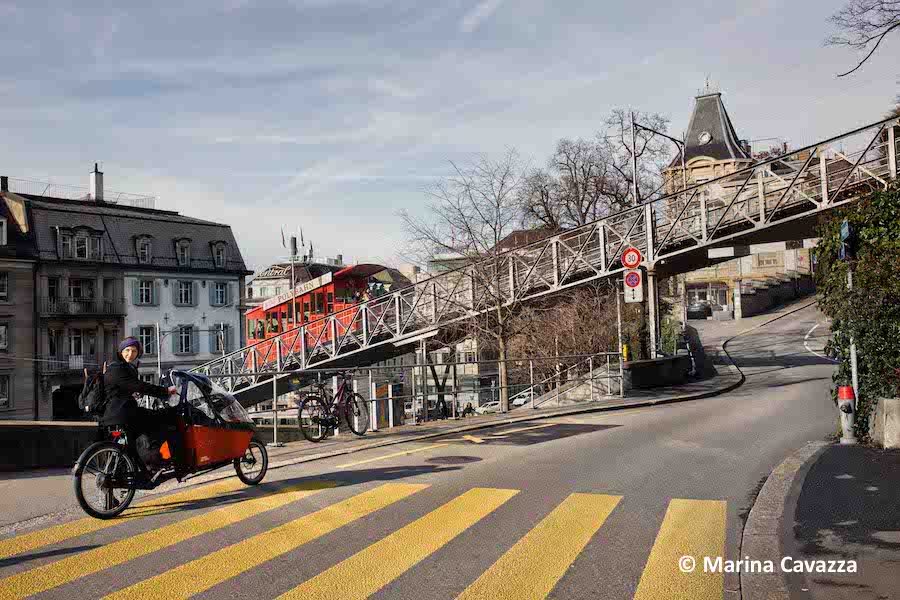
Our frontman’s point of view
Ian Bichelmeier is a 26-year-old architect who lives and works in Zurich. He covered the panel discussion and took some event photographs for MMM.
His wrap comment: “Mothers – and fathers – should not have to make choices: workplaces should be adapted and organized to allow parents to assume their care responsibilities. Flexibility is important, but in addition, employers should have rules such as conducting meetings only at times that would allow parents to do school/creche pick-ups and drop-offs.“
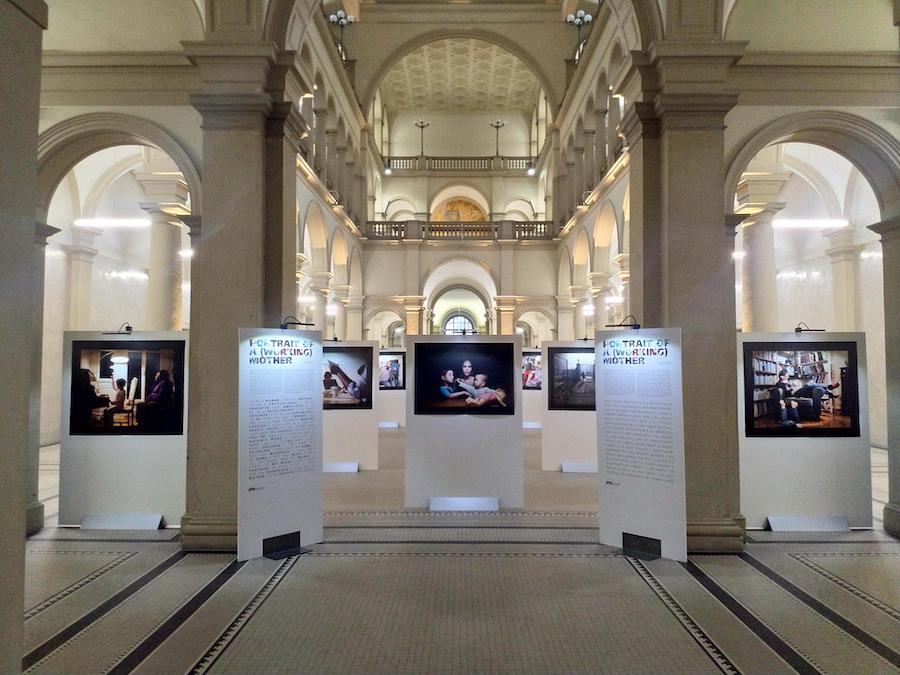
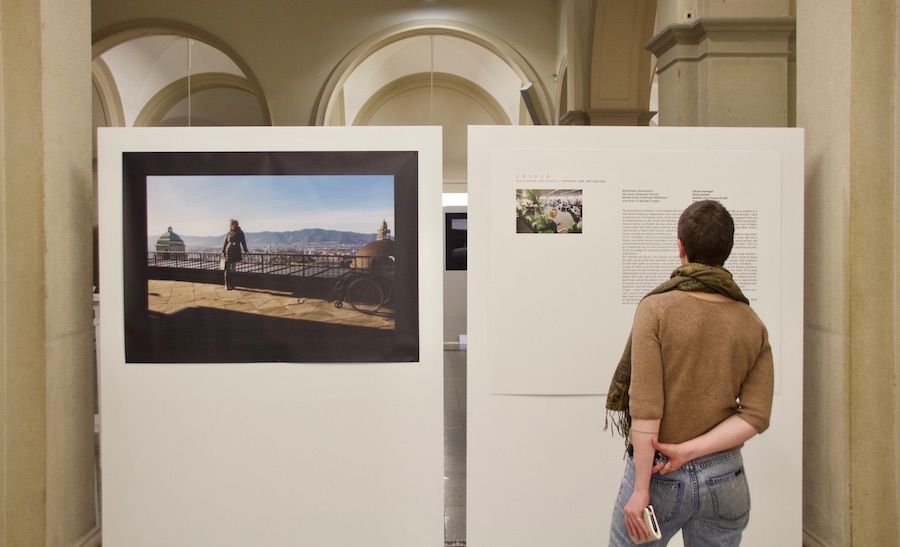
Envisioning care as a common thread to global crises
29.07.24
UN New York - Our virtual HLPF side-event brought together experts to shed light on how the various global crises we face (in particular climate change and other environmental crises,
We call for multi-stakeholder approach to recognise and support unpaid care work
21.07.24
UN New York - Participating in the meeting of the UN Economic and Social Council (ECOSOC) on care and support systems, MMM reaffirmed the principle of co-responsibility, which should underpin
The New EU Gender Equality Roadmap : A Call for Inclusion of Mothers
04.03.25
The European Commission’s initiative on a new Gender Equality Roadmap post-2025, marks a significant step forward in addressing gender disparities across the European Union. Make Mothers Matter (MMM




